AMU Disaster Crew
All Episodes
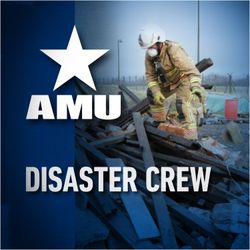
8. Evaluating the Nation’s EDM Response to COVID-19 | EP08
39:58||Ep. 8Despite experiencing smaller outbreaks of infectious diseases like MERS, SARS, and Ebola, the United States was ill prepared to respond to a pandemic. In this episode, Glynn Cosker talks to AMU emergency and disaster management professor Dr. Kevin Kupietz about the nation’s response to the coronavirus pandemic. Learn more about the gaps between planning and action, how the spread of misinformation has hindered public response, as well as some of the potential positive long-term outcomes like improved continuity of operations for schools and businesses.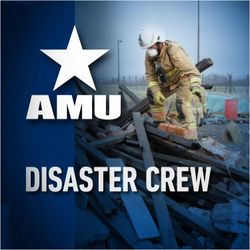
7. Preparing for the Unthinkable: Pandemics and Electromagnetic Pulse | EP07
24:42||Ep. 7How well prepared is the U.S. to face any disaster? In the second part of this series, Glynn Cosker talks to AMU Dean Dr. Chris Reynolds about preparing for any disaster scenario, even ones that once seemed unlikely. Whereas most people once thought they would never experience a pandemic, the nation continues to respond to the spread of COVID-19. Dr. Reynolds also discusses preparing for an electromagnetic pulse, also known as an EMP, which would wipe out all electronic connections including the electric power grid, communication infrastructure, vehicles, and much more.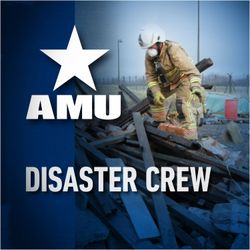
6. Tips to Prepare for Hurricanes, Earthquakes and Other Natural Disasters | EP06
25:04||Ep. 6This year has seen an unprecedented hurricane season and it’s always “earthquake season” in many parts of the country. In this episode, Glynn Cosker talks to American Military University Dean Dr. Christopher Reynolds about the three decades he spent in emergency and disaster management responding to catastrophic events like Hurricane Katrina and the Haitian earthquake. Hear about the lessons learned from those events and tips to prepare for any type of natural disaster.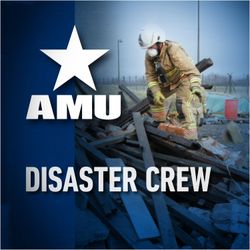
How the U.S. is Dealing with the COVID-19 Pandemic
26:33|How is the U.S. faring in the battle against coronavirus compared to other countries? In this episode, Glynn Cosker talks to political commentator and retired Marine John Ubaldi, about how different countries are managing the pandemic and issues like the lack of globally accepted metrics to measure number of the deaths caused by COVID-19. Also learn how the pandemic is affecting the upcoming U.S. election.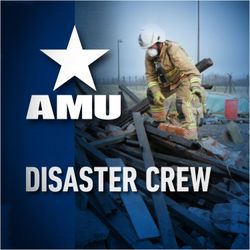
Using Genetic Genealogy DNA Databases to Solve Cold Cases
36:31|Genetic genealogy databases have aided law enforcement in successfully solving some of the most notorious unsolved criminal cases like the Golden State Killer. In this episode, AMU criminal justice professor Jennifer Bucholtz discusses how this advanced technology works and how genetic genealogy databases may help identify unknown DNA samples of both criminals and victims. Learn more about police procedure, privacy concerns related to DNA databases, and how this technology could help solve thousands of cold cases around the country.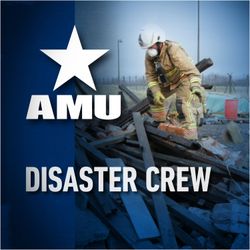
Safety of People with Disabilities
31:56|For individuals who use a wheelchair, traveling can be extremely difficult. In this episode, Sylvia Longmire discusses her experience traveling the globe in a wheelchair, her favorite ways to travel, and why it's so important for people with disabilities to be vocal advocates for accessibility rights.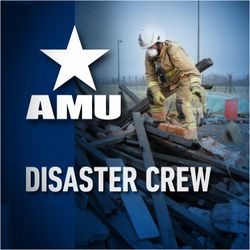
U.S. Foreign Policies Will Change Based on the November Election
19:24|In this episode, host Glynn Cosker talks to foreign policy expert John Ubaldi about how the outcome of the November U.S. Presidential election will affect the country's foreign policies including relationships with major world powers like China, Russia, and Iran. Listen to hear more about domestic policy changes including shifts in the nation’s energy policies, different strategies for economic recovery caused by COVID-19, why it’s so important to reduce the national debt, and more.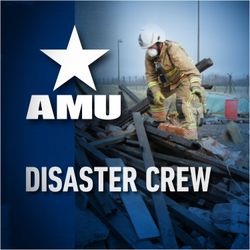
How COVID-19 is Changing Immigration and Security along the U.S. Border
33:38|How is the coronavirus affecting immigration and security along the U.S. border with Mexico? In this episode, join host Glynn Cosker for a conversation with Sylvia Longmire, an expert in border security, immigration and Mexico's drug wars. Learn how COVID-19 has suspended immigration hearings forcing asylum seekers to stay in crowded tent camps along the border for longer periods of time as they wait for courts to reopen. Also learn about the effects on DHS's relatively new migration protocols program (MPP) that changes the way CBP processes asylum requests from migrants.
loading...